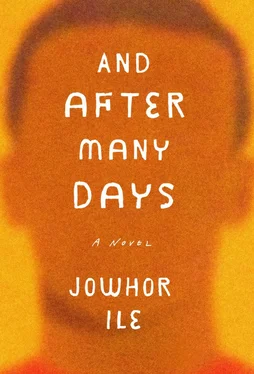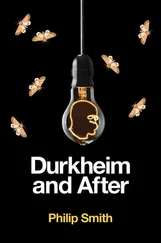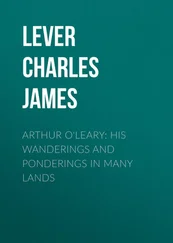These were questions Ajie needed answers to. But more, he wanted to be worthy. He wanted to be the son too difficult to give up, the one so greatly loved and therefore singularly suitable for sacrifice. Matters of this nature meant a huge deal to him between the ages of eight and nine. He would lie in bed at night and toss the questions around in his mind, and at some point, just so he could give himself some kind of answer to be able to go to sleep, he would decide what Bendic would do if he were in Abraham’s shoes. But there was so much to consider before that. Where would Ma be when all this was happening? It was difficult to imagine her sitting quietly in the kitchen while Bendic wrestled with this dilemma.
This was what would happen. After listening to the Lord’s command, Bendic would reply to the Lord Almighty, Maker of every living thing — the beasts of the fields, the birds of the air, and all the creatures of the sea, everything that walks, crawls, flies, and swims—“Leave my boys alone.” That was exactly what he would say: “Leave my boys alone. If you want someone dead, by all means, here I am, and please do the killing yourself, don’t make someone else do the dirty job.” At which point Mr. Ifenwa would spring up and cheer from the crowd of witnesses, whistling at Bendic’s courage, his thumb raised high, and then shouting: “Or just make him a prisoner of conscience!”
Paul pushed the screen door open and walked into the parlor, holding the door as Ajie followed him in. Bendic looked up at them; there was a pause in his speech as he held their gaze, was there a message for him, did they want something, or had they come to sit and listen? He finished his sentence as Aduche stepped into the parlor.
“Swooooooy!” Bendic roared. “Swoy! Agbra Obigor. ” Spirit of the bushes. Lord of Obigor forest. Bendic stood erect like a soldier in a parade as he called the high priest by his many praise names, then he doubled over, waist down, and greeted. Bendic gave Aduche twofold respect because he was from Bendic’s mother’s people. He owned Bendic.
“Should I rise?” Bendic kept asking after the greeting was over.
“Please,” Aduche responded, “please rise, son of my sister.”
“You are sure?” Bendic insisted as some laughter came from the crowd. The air in the room had lightened. Bendic straightened up, submitted to a hug from Aduche, and waited for the man to take a seat that had been vacated for him. “You arrived just in time. I was finishing.” Bendic beckoned to Paul, and when he came close, he whispered in his ear, “Tell your mother to bring the whiskey. She should also put an unopened bottle in a bag for when Aduche is leaving.”
Some of the faces in the room that day were not regulars in the house; some weren’t particularly close friends of Bendic, although with the way things were in Ogibah, if someone wasn’t your friend, it was very likely he was your brother. The lightness in the room did not last for long. There was something extra in the air that day. As Paul and Ajie went off to get the drink, they heard someone bang his fist on the table, and soon there was shuffling as two men were restrained from getting into a fight. Paul and Ajie hurried back with the whiskey in time to hear Nwokwe shouting.
“Let your father eat shit!” He pointed at Jonah, his red kepe nearly falling off his head. “You say I ate bribe from Company?”
Jonah advanced toward Nwokwe, shouting back, “Did I say it behind your back?”
“You say I ate bribe, can you swear? Do you have witnesses? Swear by Ntite, let’s see whether you will last three days.” Nwokwe snapped his fingers.
Some people pulled him away, asked him to be calm, to have some respect for the gathering and for Bendic, who had arrived from Port Harcourt only today, and for the elders here.
“Were you people not here when he accused me?” Nwokwe retorted. “You all saw him open his mouth to talk like someone born yesterday.”
“I say you took money from Company,” Jonah shot back. “You are exactly like your father, bowing down to paper money and coins. And as for that son of yours, ha!”
“There is no need for hot blood yet.” Bendic raised his voice from where he sat in his armchair. The chair had wooden legs that ended in an imitation of the paws of a great bush cat. Bendic had been taking in the scene calmly, and now that he raised his voice, a little quiet returned to the room again, and eyes turned toward him. “It’s a serious accusation Jonah is making.” Jonah squeezed his face and nodded from where he sat on a bench. “Nwokwe is here with us,” Bendic continued, “and can answer for himself, here in our presence. We will discuss what we can today and come back tomorrow if need be.” Nwokwe’s face was like an open sack of nails. “Let us all bear in mind,” Bendic’s voice soared in the still air of the room, “that this thing trying to rip us apart is actually coming from outside. If we don’t understand that first, then we will be wasting strength on the wrong matter.”
Heads nodded. “It’s true,” said one of the young men leaning against the wall. Seats had been arranged behind the sofa but weren’t enough.
Application Master got up and called out greetings. He called out a few times before quiet fell on the place. An old man by the corner was shrugging, and his “Let them shut up so we can get to the bottom of this” was the only sound breaking the silence.
Application Master began to speak. “Our people say rather than let the antelope escape completely, let us at least slice off his tail.” Grunts of approval from the crowd followed. It’s true. It’s true. “This meeting will continue tomorrow, but we are here already, so we might as well talk…
“Company has been here for nearly three decades. There are young men in this room who were not yet born when they came to tap oil from our ground. Nobody here can say we have treated Company badly. And that’s not to say our stomachs are too sweet with happiness. What your God has blessed you with, you can’t quarrel with it. You use it and move ahead in life, for your own good, for your children, and for your neighbor, too. Is it not so?” Application Master paused.
“It is so, it is so.” More grunts from the crowd.
“Before Company came, we were here, the oil was here, right here.” Application Master stamped his foot on the tiled floor. “Right here, under our feet. Did we make trouble when they came here combing through our forests? When they said the government sent them, did we not make way for them and even show them around? Did we not agree when they pointed at the places they wanted to dig their burrow pits and set their derricks? When their work destroyed our farms, when they cut through people’s houses to build their pipelines, did we fight them or seize their workers so that their work would not go on? Did we not accept the money they paid for damages?
“Everyone here knows what happened in ’71.” A groan escaped some older people in the room. Someone echoed the year and snapped his fingers. “If you were too small,” Application Master continued, “or not born yet, ask your parents, let them tell you what our eyes saw here in 1971. We have managed since then with Company — not friends, not enemies.
“Now that they have decided they want to build pipe for gas, not oil, they want the pipes to go through our farms and our waterside near Idu. I have only one question to ask: If the ones they built for oil are killing us now, why should we allow them to put up new pipelines when we don’t know what damage they might cause?”
Nwokwe rose to his feet and his snuffbox clattered onto the floor, destroying the calm Application Master’s speech had created. “If not for Company!” he shouted. He didn’t even look down at the fallen item. Someone next to him picked it up to hand back to him, but he waved the hand away. “If not for Company, you think we would have been anything that we are today?” His voice was loud, like someone in the middle of a quarrel.
Читать дальше
